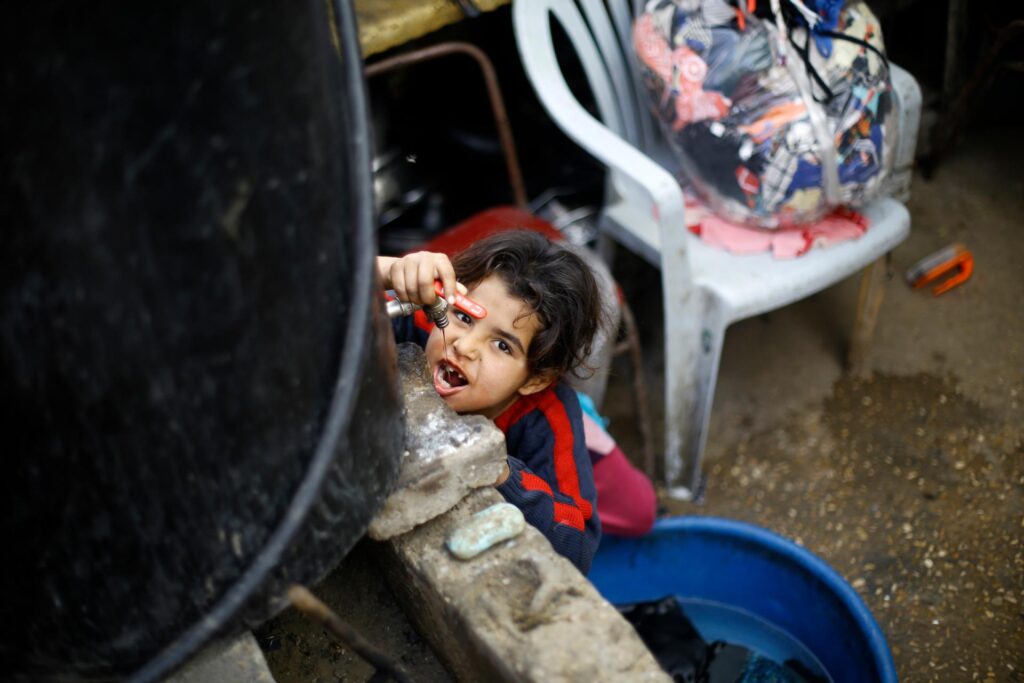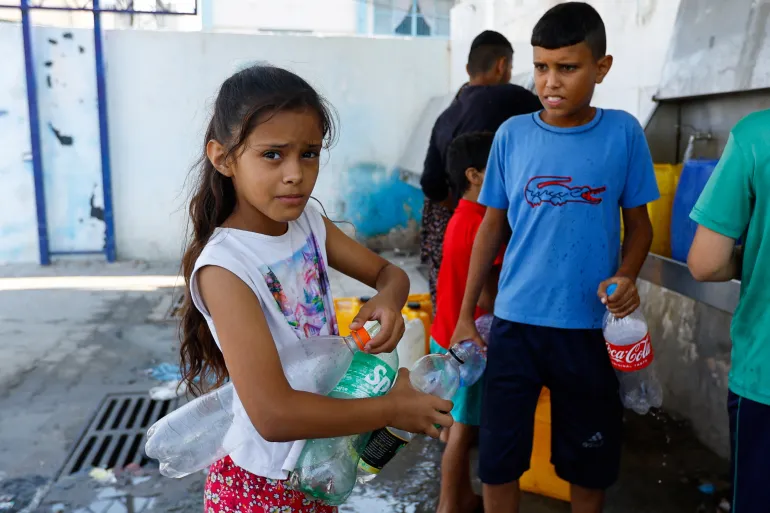UN and NGOs Struggle to Provide Clean Water Amidst Failing Infrastructure.
In a region already marred by conflict and economic hardship, the dire water crisis in Gaza has taken a devastating toll on its most vulnerable population—pregnant women and their unborn children. According to the United Nations, 150,000 expectant mothers in Gaza are unable to access clean water, and an alarming 5,500 of them are due to give birth in the coming month, heightening concerns about their health and that of their babies.
The scarcity of clean water in Gaza is nothing short of a humanitarian emergency. With residents having access to municipal water only three times a week, families are forced to make do with a meager supply that is often mixed with sewage due to the failing infrastructure in the overcrowded refugee camps.

The repercussions of this dire situation are far-reaching and alarming. The lack of clean water poses a significant risk to the health of both mothers and their unborn children. Consuming contaminated water can lead to a host of waterborne diseases, malnutrition, and complications during pregnancy, putting women and infants in grave danger.
Moreover, infants are particularly susceptible to infections and illnesses, and the lack of clean water only exacerbates these risks. The UN has reported that undrinkable water is slowly poisoning Palestinians in Gaza, and this crisis demands immediate attention and action to avert a major health disaster.
While the situation is dire, there is hope on the horizon. The United Nations, along with various NGOs, has been actively engaged in projects aimed at bringing clean water to clinics in Gaza. These efforts are pivotal to fortify medical facilities to care for expectant mothers and infants. However, it is evident that more needs to be done to ensure that all residents in Gaza have access to clean water.
The situation is particularly concerning for pregnant women who require clean water for their health and the health of their unborn children. The international community must unite in addressing this pressing issue to prevent further suffering and loss of life. It is not only a matter of humanitarian concern but also an essential step towards maintaining basic human rights.

As the world watches the plight of Gaza residents, we cannot afford to ignore their cries for help. The clock is ticking, and action is needed now to avert a catastrophe that could have long-lasting consequences on the lives of thousands.
In these trying times, let us remember the most vulnerable among us and extend our support to alleviate their suffering. The people of Gaza, especially pregnant women and their unborn children, deserve access to clean water for their health and well-being.
Resources:
3.https://www.aljazeera.com/news/2021/10/12/gaza-undrinkable-water-slowly-poisoning-people
4.https://www.unicef.org/sop/stories/gazas-clinics-get-clean-water-fortifying-them-case-crisis